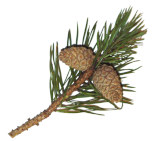Comments on the early Grant history as set out at
https://clangrant.org/clan-history/
(retrieved 30/01/25)
What the site says is reproduced here in
red.
Origins
The name Grant has been an influential one throughout Scotland’s history but the exact origins of the ancient Clan Grant remain a subject of discussion.
The traditional oral histories of the Clan Grant suggest that its origins lay to the north with the Viking, Haakon Grandt of Norway, who settled in Scotland about 960, after a brief sojourn in Ireland.
-
Errr…. No, they were very definitely NOT “oral”. They were manscript – and the text in the manuscript histories which we do have were written using earlier WRITTEN sources. The proof of this is that the mistakes could not have been made in the way that they were had the transmission been oral.
-
As for the date 960 the MS histories are very clear that the date is “computed” – this is someone (the original writer) doing some calculations based on (as it turns out) erroneous data.
-
There is no suggestion that Haakon’s origins were in the “north”. What the writer is struggling to say is “Norway”. Errr…. Not quite the same thing (although it is true that most of Norway is north of most of Scotland).
-
It is not true that anyone (apart from the writer of this webpage) has ever claimed that Haakon spent any time in Ireland. That “brief sojourn” was undertaken by King Haakon Ericsson’s son Heming and his grandsons Olaf and Swein.
Others believe the Grants descend from Kenneth MacAlpin, a 9th century king of the Picts, who became King of Scots. This legend also established the Siol Alpin(descendants of Alpin), a familial bond between the Grants, the MacGregors, and other clans.
This paragraph is written as if it opposes the first one, when it is clear in the MS histories that both are correct because what actually happened was that the descendant of Haakon married a descendant of Alpin. Why the descendants chose to identify as the “Siol Alpin” is fully explained in Scottish Clans. Any right thinking person can see the stupidity of this idea as portrayed here because the Kings of Scots too descended from Alpin and so had a clearly superior claim to this characterisation.
Another theory is that the Grants came from the south with influential Anglo-Norman feudal barons in the 13th century to establish their foothold in the vicinity of Inverness.
It is true that a few people viscerally (for it cannot be logically or intelligently) opposed to the idea of a Viking origin do try to punt this lie invented by “the Good” Sir James and first promulgated in 1773 for political reasons. However making this statement is an insult to the memory of Peter Grant of East Lavant who published a root and branch demonstration that this is impossible.
Grants held lands in Stratherrick on the southeastern shores of Loch Ness – perhaps as early as the 13th century. Sir Laurence le Grant was Sheriff of Inverness in 1263.
The “perhaps” here is fatuous. Sir Laurence was Lord of Stratherrick after the Bissets were forfeit. It was Sir Laurence’s father, Gregory Grant who had gained Stratherrick proper by marrying Mary Bisset (c1205) – but he held it under the Bissets.
John le Grant secured part of Inverallan in 1316 – the first lands held by the Grants in their future stronghold of Strathspey.
While technically true this is poorly worded and is actually misleading.
In the 15th century, Sir Duncan le Grant inherited lands in the barony of Freuchie, near present-day Grantown, thereby establishing the patrimony of future Lairds of Freuchie and Chiefs of the Clan Grant, which lasted almost five centuries.
This is unhelpful and largely untrue. It was not until 1493 that John Grant, the Bard Roy, obtained a charter from James IV erecting his lands into the Barony of Freuchie.
It was the Grants who transferred the place name Freuchie originally to their lands in Inverallan (ie it was not “near” present-day Grantown, it included it; Castle Grant was usually referred to as “Ballachastel”).
There is an unstated allusion here to (and misunderstanding of) the claim of Marjorie Lude to be “lady of half the Barony of Freuchie” for which see the article about her.
